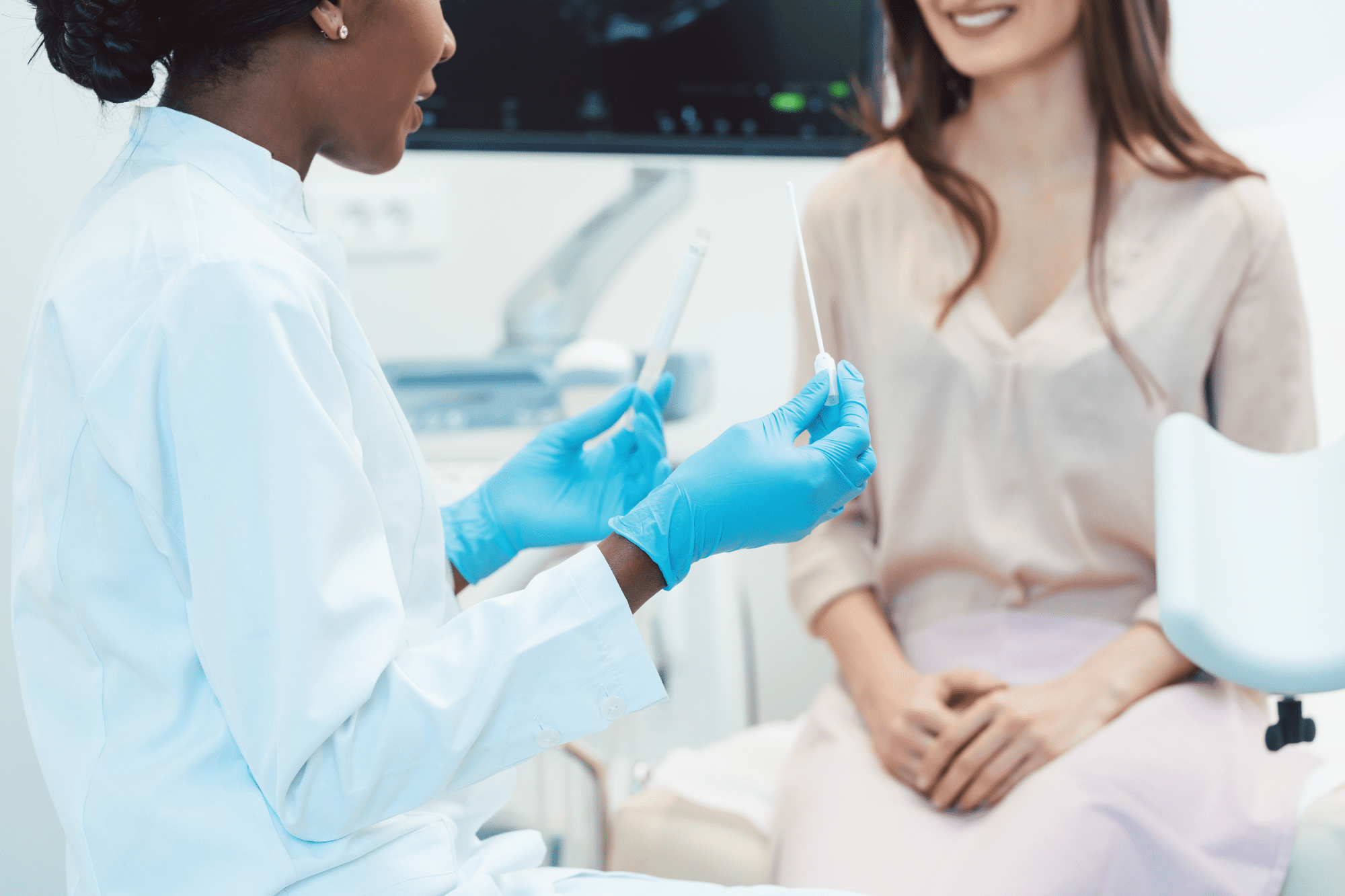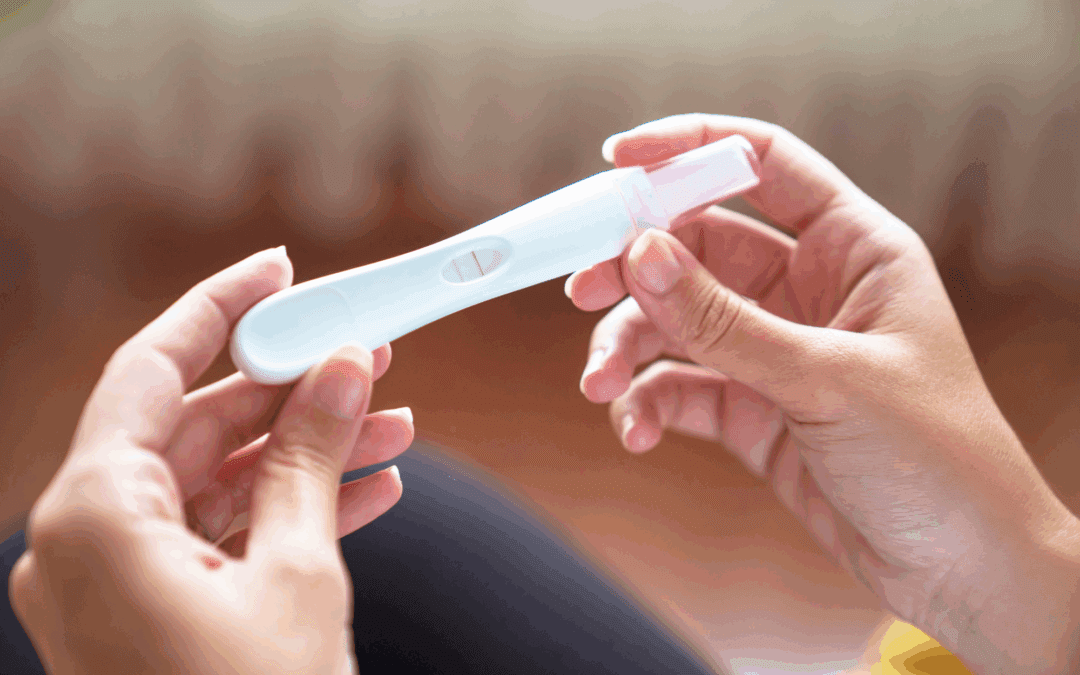STDs and pregnancy options may not seem connected. As we’ll explain in this blog, however, it’s impossible to truly understand the choices you can make for your pregnancy without knowing your STD status. If you want to make the best decision for your long-term health, getting tested for sexually transmitted diseases should be one of your first steps.
What are STDs and how are they transmitted?
A sexually transmitted disease is a condition that is passed through sexual contact. If your mouth, vagina, or anus touches the mouth, genitals, or bodily fluids of an infected person, you may catch the disease. STDs can be bacterial, viral, or parasitic. Some are easy to treat while others are impossible to cure.
In the U.S., about one in five people has an STD. That adds up to nearly 68 million cases of sexual infections in 2023 alone. Worse, many people who have an STI don’t have any symptoms. Without testing, you may overlook an infection that can affect your health down the road.
That said, many people do experience side effects from these diseases. Common symptoms include:
- Severe itching or swelling near your vagina
- Vaginal bleeding other than menstruation
- Vaginal discharge that has an unusual color or smell, causes irritation to your genitals, or is produced in greater amounts than usual
- Warts, sores, or bumps on or around your vagina or anus
- The frequent urge to urinate or pain while you urinate
- Painful sex
Untreated STDs may develop into more serious conditions, so it’s important to get tested and treated ASAP. Some infections will go away with treatment. Others require lifelong care to manage the symptoms.

Can an STD affect my pregnancy options?
Yes, a sexually transmitted disease will affect your pregnancy options. Whether you choose abortion, adoption, or parenting, you will need to treat your infection first.
As a woman, your entire reproductive system is vulnerable to sexual diseases. While the infection may start in or around your vagina, it can travel to your uterus, ovaries, and Fallopian tubes. It can then develop into a condition called pelvic inflammatory disease (PID).
This condition often causes abdominal pain, pain during sex and urination, irregular periods, abnormal vaginal discharge, nausea, vomiting, and fevers. It can also cause scarring and damage to your reproductive organs, which may lead to infertility.
While any woman can develop PID from an untreated STI, abortion and birth increase your risk. Usually, you have a protective barrier across your cervix that prevents bacteria from reaching your uterus and other organs. But birth and abortion remove this barrier.

There’s also an additional concern with STDs and abortion. The tools used in a surgical abortion can move the infection directly into your womb. Placing abortion pills in your vagina may also lead to an infection in your reproductive system. The FDA reports that at least 10 women died from septic infections after using the vaginal abortion pill method.
If you choose to carry your pregnancy to term, pregnancy complications from STDs can also harm the infant. Viral and bacterial infections can be passed through the blood during pregnancy and through contact with the infection during birth. You can also transmit an STD through breastfeeding.
The importance of STD testing before or during pregnancy
If you are or think you might be pregnant, you should be concerned about your reproductive health and STDs. With just a quick and easy test, you can gain peace of mind about your well-being and next steps. Plus, if you do have an infection, you can protect your future health with immediate treatment.
It’s also important to note that every person who has had sex is at risk for an STI. Even if you used a condom or only engaged in certain activities, you may have been exposed. Pregnant patients may qualify for free, confidential STD testing and treatment at our clinic so you can protect your health without a major cost.
Find free STD testing and treatment at Assured Women's Healthcare
Getting information about STDs and pregnancy options in Florida is one of the first things to do after testing positive for pregnancy. Our no-cost services allow you to understand crucial information about your health and pregnancy. You’ll also learn about all your pregnancy options and the resources available to you. You can get answers to all your questions in a safe, comfortable, and confidential environment.
We want you to feel informed about your pregnancy options and empowered to make a confident decision. Find the care you need here today.

